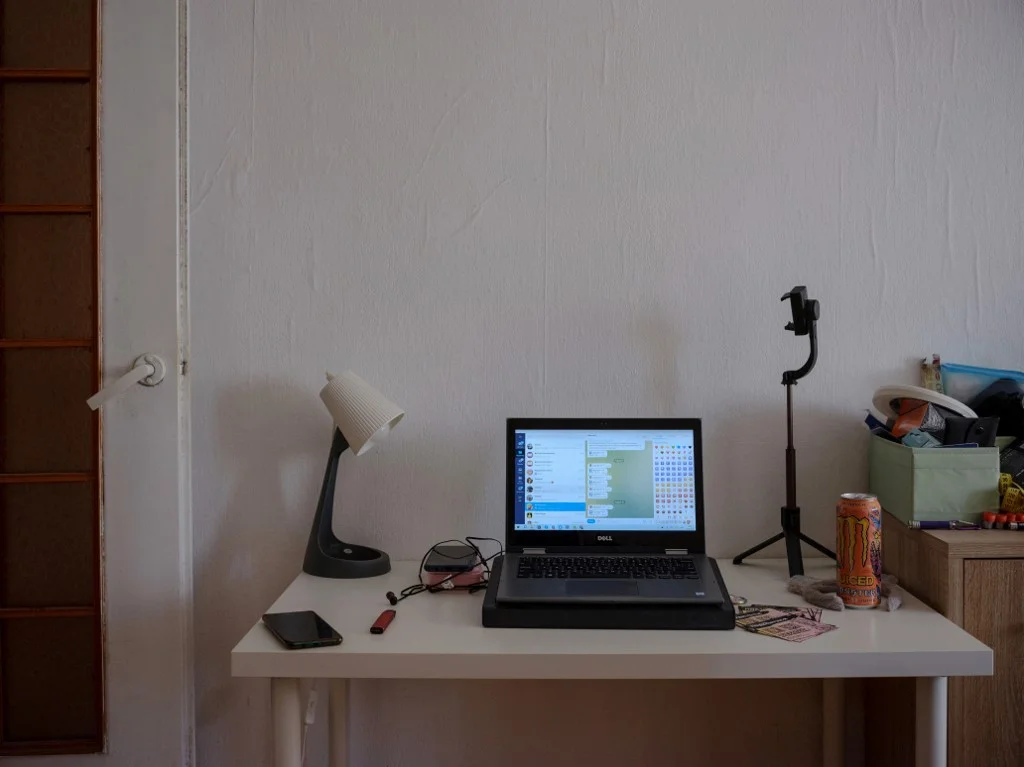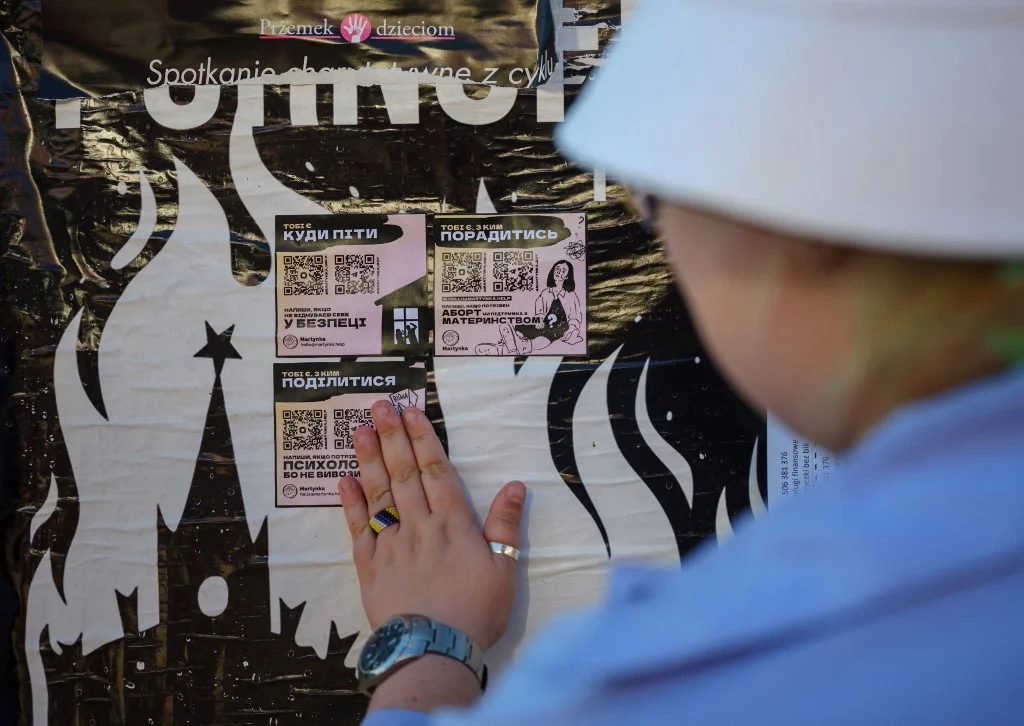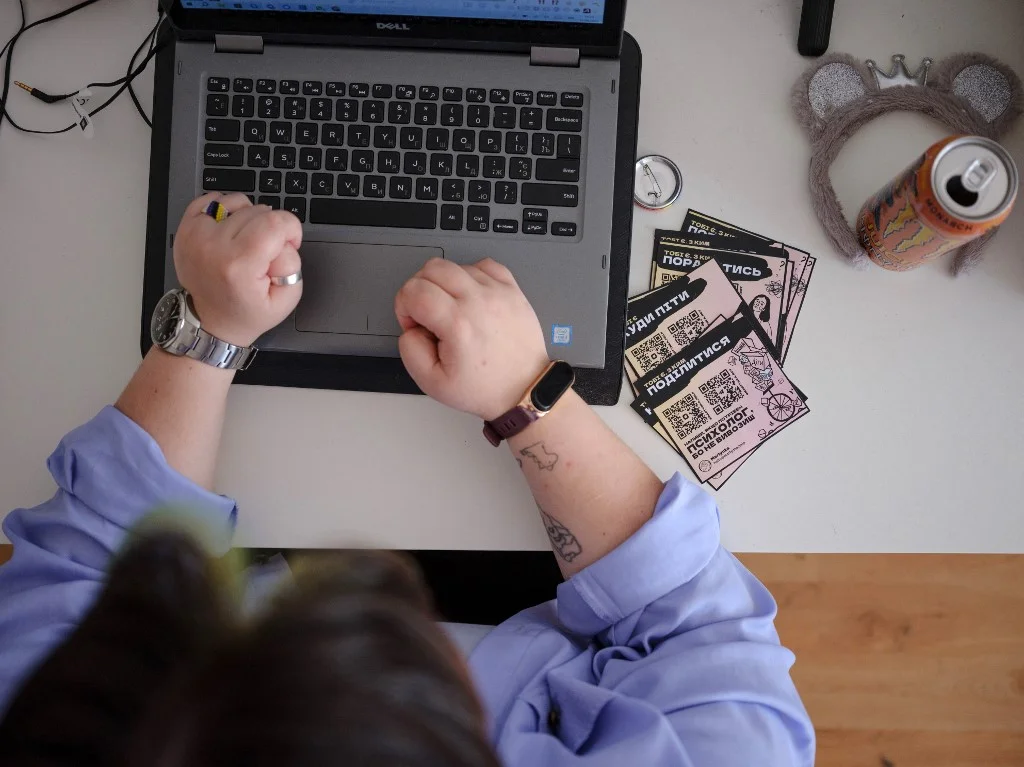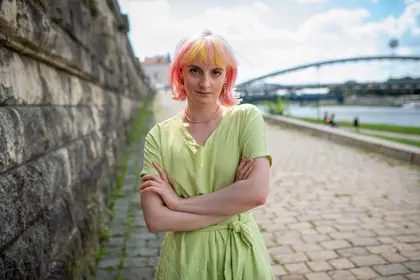As a survivor of an attempted rape in Poland, Ukrainian Nastya Podorozhnya knows how lonely the struggle of a woman living in a foreign country can be.
This was why the 26-year-old -- a “Ukrainian abortion fairy in Poland,” as she describes herself on Instagram -- has made it her goal to help refugee women exercise their reproductive rights in the country with a near-total abortion ban.
- Access the latest Ukraine news coverage for today.
- Russian Losses in Ukraine War
JOIN US ON TELEGRAM
Follow our coverage of the war on the @Kyivpost_official.
Podorozhnya moved to Poland in 2014 to study, and it was during her university years that she fell victim to sexual violence.
Later in court, she faced an array of detailed questions, including about her marks at school.
“I found out then how difficult it was for a female immigrant to recount her ordeal in a foreign language,” Podorozhnya told AFP.
With this in mind, when Russia began its full-scale invasion of Ukraine in early 2022, she launched a Telegram channel to support women fleeing the war.
She named the Telegram helpline “Martynka” after her niece -- and began answering queries seeking help with translations, securing the right to stay in Poland or finding mental health support.
 The computer of 26-year-old Niko Doroshenko, an activist of the Martinka trust service, is pictured on a table in their apartment in Gdańsk on August 16, 2023.BARTOSZ BANKA / AFP
The computer of 26-year-old Niko Doroshenko, an activist of the Martinka trust service, is pictured on a table in their apartment in Gdańsk on August 16, 2023.BARTOSZ BANKA / AFP
“Martynka is your friend in Poland -- if you don’t have anyone here, Martynka always has your back,” Podorozhnya said.

Trump’s Russia Plan – Will It Work? NATO, Putin & US Strategy Explained
Poland has now taken in around 1.2 million Ukrainian refugees -- twice as many women as men, according to Statistics Poland.
But it also has one of Europe’s most stringent abortion laws.
Doctors can only terminate pregnancy in cases of rape or incest, or when the mother’s life or health is considered at risk -- unlike in Ukraine, where abortion is allowed during the first 12 weeks of pregnancy.
- ‘Nightmare continues’ -
For many women fleeing the war, Poland’s restrictive abortion laws came as a surprise.
“Very often they are stunned, shocked or in disbelief,” Podorozhnya said.
“Women in Ukraine are not used to having their reproductive rights curtailed. The problem that exists in Ukraine is one of insufficient awareness... but not of access to such procedures.”
Niko Doroshenko, an activist at Martynka, said that they had also received questions from war crimes victims.
“Some (women) have fled the annexed territories and share various stories behind their pregnancies,” the 26-year-old told AFP.
“They think they’ve arrived in a safe country, that they fled the nightmare -- but their nightmare continues.”
Martynka offers them a helping hand, all within the bounds of the law.
 Niko Doroshenko, 26, an activist of the "Martynka" trust service, attaches stickers with information about the helpline in Ukrainian to a signboard at a tram stop in the center of Gdansk, on August 16, 2023.BARTOSZ BANKA / AFP
Niko Doroshenko, 26, an activist of the "Martynka" trust service, attaches stickers with information about the helpline in Ukrainian to a signboard at a tram stop in the center of Gdansk, on August 16, 2023.BARTOSZ BANKA / AFP
“We don’t help in abortions as such,” Doroshenko said, “we only provide information about legal and safe abortion -- or put women in touch with nonprofits that help carry it out.”
This, Podorozhnya added, is not illegal in Poland. And yet, it is often information that is the most precious.
“We’re the first Ukrainian organisation to actively spread knowledge on safe abortion” in Poland, Podorozhnya said.
The chatbot that she launched is now run by seven activists, including people based in Berlin and Kyiv. Since March 2022, they replied to more than 1,000 people.
 Niko Doroshenko, 26, an employee of the Martinka helpline, works at a computer in his apartment in Gdansk on August 16, 2023.BARTOSZ BANKA / AFP
Niko Doroshenko, 26, an employee of the Martinka helpline, works at a computer in his apartment in Gdansk on August 16, 2023.BARTOSZ BANKA / AFP
- ‘Morally prepared’ -
The questions are not only about abortion. Martynka also receives messages sent by women suffering from war trauma or from victims of human trafficking.
“We mostly hear about the so-called ‘boyfriend model’, when a refugee enters into a relationship with a man, falls in love and moves in with them,” Podorozhnya said.
“Very often, drug use enters the picture, and the man forces the drugged victim to have sexual intercourse with other men or to work on sex cams”.
Another significant group are domestic abuse survivors, Podorozhnya said, mentioning a recent case of a heavily pregnant young Ukrainian girl.
“She’d been through a horrible abusive situation,” Podorozhnya said, wary of disclosing details to protect the victim.
The woman was not legally considered a refugee because she had not come to Poland directly from Ukraine and so did not qualify for free healthcare.
After consulting with lawyers, the Martynka team arranged for her to recross the border to gain the needed eligibility. She has since given birth.
“Martynka is mostly associated with abortion, it just ended up that way. But we are pro-choice and we support mothers wholeheartedly,” Podorozhnya said.
In Poland, pro-choice organisations face an uphill battle.
In March, activist Justyna Wydrzynska was found guilty of supplying abortion pills to a pregnant woman and sentenced to community service.
“We know what happened to Justyna Wydrzynska,” Podorozhnya said, “and sometimes when I lock the door, I really think that one day the police may come knocking.”
She added, however, that she had to be “morally prepared” for the scenario.
“All of us at Martynka know what we do and what the reality is in this country,” Podorozhnya said.
“But even a single word from those we help is worth it -- and we have received dozens of them.”
You can also highlight the text and press Ctrl + Enter










